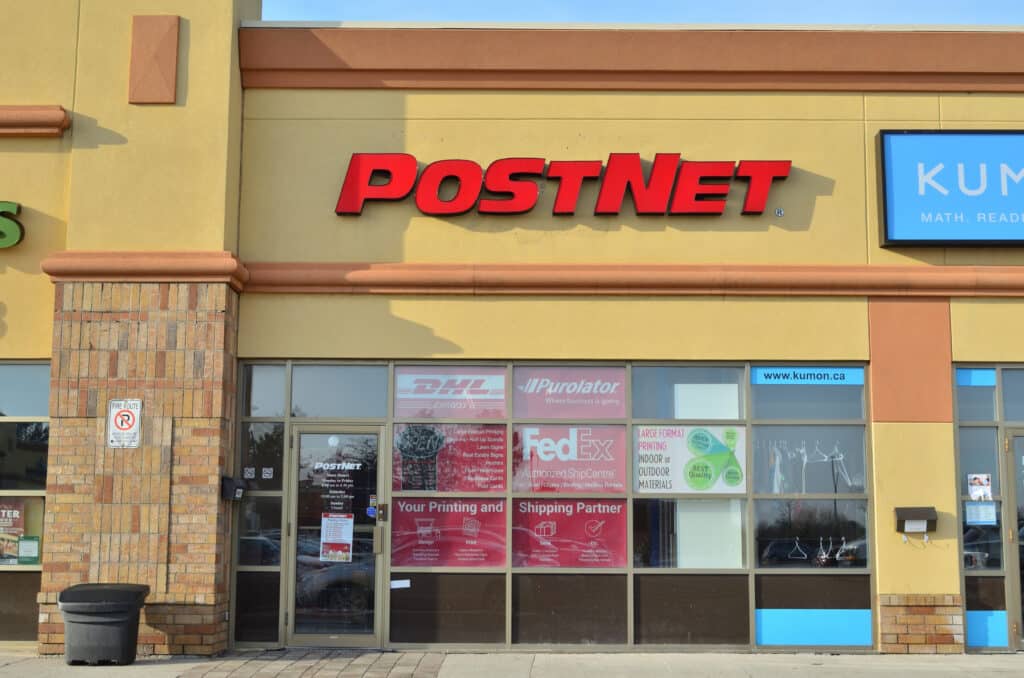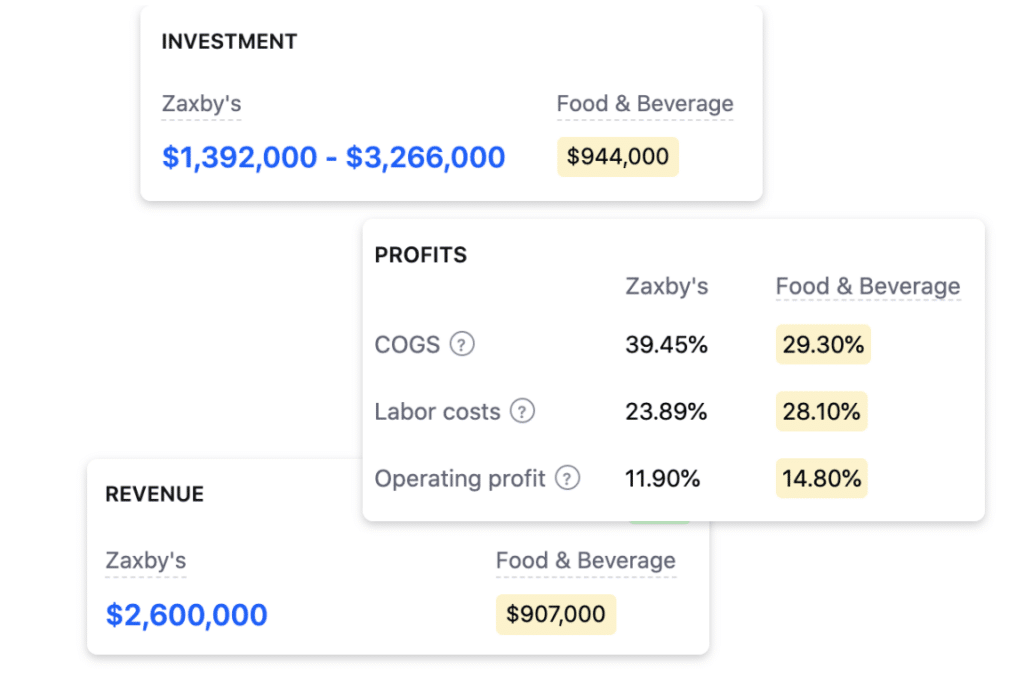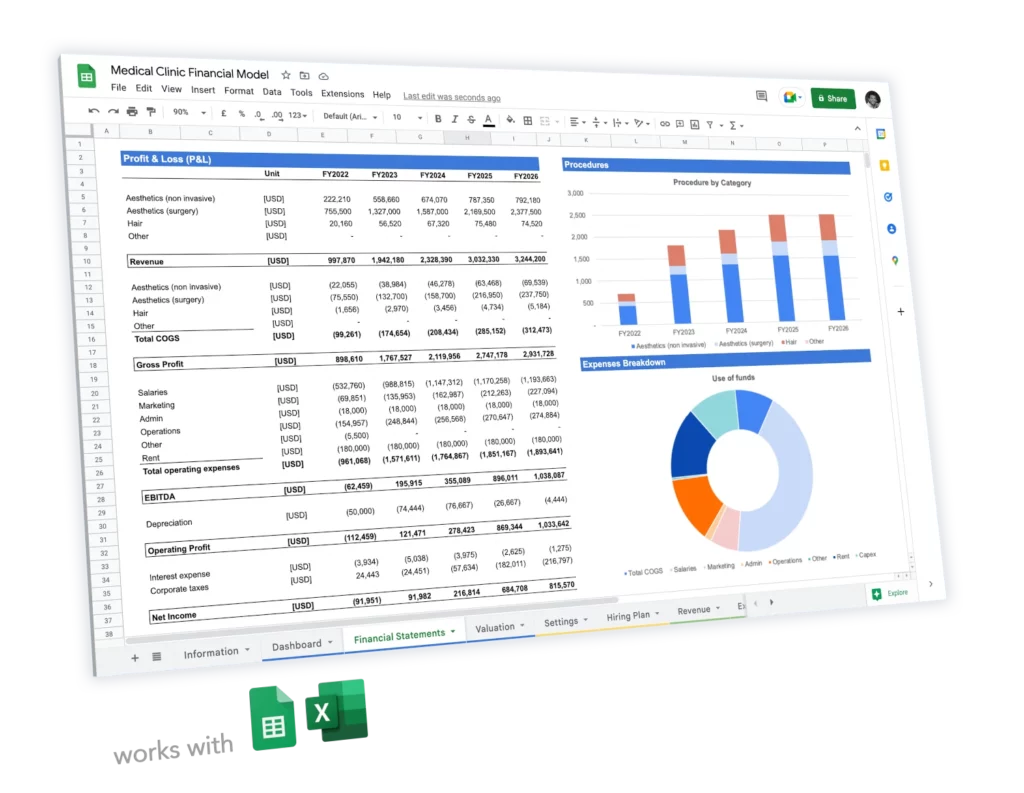
PostNet Franchise Costs $201K – $261K (+ 2024 Profits)
Here’s what you need to know if you’re interested in opening a PostNet franchise.

|
KEY FRANCHISEE INFORMATION
Here are the most important stats to know for franchisees.

NUMBER OF LOCATIONS

INITIAL INVESTMENT
$209,000 – $261,000

ROYALTY FEE

REVENUE PER YEAR
$361,000
PostNet International Franchise Corporation, founded in 1985 and headquartered in Lakewood, Colorado, began its franchising operations in 1993. As a franchise, PostNet offers a range of services tailored to meet the needs of small and medium-sized businesses, including printing, marketing, shipping, and mailbox rentals.
The brand emphasizes its differentiation from competitors by providing high-quality customer service and leveraging technology to offer efficient and innovative solutions.
One of the key appeals of PostNet is its community-focused approach, where franchisees become part of a network of entrepreneurs committed to mutual success. This supportive environment is complemented by extensive training programs and ongoing support from the corporate headquarters, which cover everything from site selection and marketing to day-to-day operations.

Number of locations
Here’s how many PostNet there are in the US today.
| TOTAL UNITS 200 |
| FRANCHISED UNITS 200 |
Find the most profitable franchises on

Compare 1,000+ franchises and download unlimited FDDs
| PostNet | |
| FRANCHISE FEE | $36,750 |
| ROYALTY FEE | 5.00% |
| INITIAL INVESTMENT | $209,000 – $261,000 |
| AVERAGE REVENUE | $361,000 |


Initial investment
Here’s what you can expect to spend to start a PostNet franchise.
Note: The table above provides a snapshot of the main costs associated with starting the most common franchise format (as disclosed in the Item 7 of the Franchise Disclosure Document). For a complete overview of all the expenses involved with the various formats offered by the franchisor, please consult the Franchise Disclosure Document.

Franchise fees & Royalties
Here are the main ongoing fees the franchisor will ask you to pay going forward to run the franchise.
Initial Franchise Fee
The initial franchise fee is $36,750, payable upon execution of the Franchise Agreement. This fee is fully earned and non-refundable.
Royalty Fee
Franchisees will pay a continuing monthly royalty fee equal to 5% of the Gross Sales for your Center. This fee is ongoing and supports the use of proprietary marks and other intellectual property.
Marketing/Advertising Fee
Franchisees contribute 2% of Gross Sales monthly to a National Advertising Fund. Individual Advertising Expense is greater of two percent (2%) of Gross Sales for the previous calendar year or $6,000 per year.
Technology Fee
The technology fee covers software licenses, updates, and services, currently $120-125 per month.
Transfer Fees
The transfer fee is the greater of $10,000 or fifty percent (50%) of the then-current initial franchise fee. A $500 non-refundable deposit is required at the time of transfer application submission.

Revenue & Profits
Here’s how much revenue and profits you can make with a PostNet franchise.
Find the most profitable franchises on

Compare 1,000+ franchises and download unlimited FDDs
| PostNet | |
| FRANCHISE FEE | $36,750 |
| ROYALTY FEE | 5.00% |
| INITIAL INVESTMENT | $209,000 – $261,000 |
| AVERAGE REVENUE | $361,000 |

Franchise pros and cons
The Pros:
- Real estate and site selection: The franchisor works with franchisees to identify a suitable location for their centers and helps them with the designs and lease negotiations to lower their startup costs.
- Pre-opening training: The franchisor offers its franchisees comprehensive training to prepare them to launch their centers and run their businesses successfully. The initial training consists of 40 hours of on-the-job training and 55 hours of classroom training and there may be ongoing training as the franchisor deems necessary.
- Exclusive territory protection: The franchisor grants the franchisees the right to operate in a protected territory defined in the franchise agreement. As long as the franchisee complies with the agreement, the franchisor does not license any other franchise or operate a competitive business in the area.
- Multi-courier options: PostNet offers its customers diversity and value through multi-carrier shipping options such as UPS, FedEx, DHL and USPS.
- Third-party financing: PostNet offers its franchisees financing assistance through third-party lenders for startup costs, franchise fees, equipment and inventory and payroll.
- Marketing and advertising support: The franchisor has aggressive marketing strategies to help its franchisees attract customers and boost their sales. Franchisees can leverage branding and public relations through national media, regional advertising, social media, loyalty program apps, etc.
The cons:
- Not a home-based opportunity: The franchise cannot be run from home or a mobile unit. Franchisees must have a fixed office space to operate from.
- No absentee ownership: The franchise does not present a passive investment opportunity. Franchisees must be actively involved in the decision-making and operations of their franchises.
- Not a part-time business: Franchisees must keep their franchises open full-time for at least 40 hours per week.
How to open a PostNet franchise
Opening a PostNet franchise involves several steps, designed to ensure you are a good fit for the franchise. Here are the main steps to follow to open a PostNet franchise.
1. Initial Inquiry and Information Gathering
- Contact PostNet: Reach out to PostNet by filling out an inquiry form on their website to express your interest in the franchise.
- Receive Franchise Information: You will receive detailed documents about the franchise opportunity, covering financial requirements, operational expectations, and the support structure for franchisees.
- Attend Discovery Days: Participate in sessions that allow potential franchisees to meet with PostNet executives and gain a comprehensive understanding of the business.
2. Application and Qualification
- Submit Application: Fill out the franchise application with your personal and business background as well as your financial information.
- Financial Review: Your financial details will be assessed to ensure you meet the investment and liquidity requirements.
- Approval Process: Successful applications lead to interviews or meetings with PostNet corporate to finalize approval.
3. Training and Support
- Initial Training: Undertake a training program that includes both classroom learning and practical, hands-on experience at an established PostNet location.
- Operational Support: Benefit from continuous support in areas like operations, technology, and marketing strategies.
- Site Selection and Establishment: Collaborate with PostNet to find and secure a suitable location based on market research and company criteria.
Disclaimer
Disclaimer: This content has been made for informational and educational purposes only. We do not make any representation or warranties with respect to the accuracy, applicability, fitness, or completeness of the information presented in the article. You should not construe any such information or other material as legal, tax, investment, financial, or other professional advice. Nothing contained in this article constitutes a solicitation, recommendation, endorsement, advertisement, or offer to buy or sell any franchises, securities, or other financial instruments in this or in any other jurisdiction in which such solicitation or offer would be unlawful under the franchise and/or securities laws of such jurisdiction.
All content in this article is information of a general nature and does not address the detailed circumstances of any particular individual or entity. Nothing in the article constitutes professional and/or financial and/or legal advice, nor does any information in the article constitute a comprehensive or complete statement of the matters discussed or the law relating thereto. You alone assume the sole responsibility of evaluating the merits and risks associated with the use of any information or other content in this article before making any decisions based on such information or other content.
Interested in buying a PostNet franchise?
Download the financial plan built with the latest Franchise Document.

![]()

